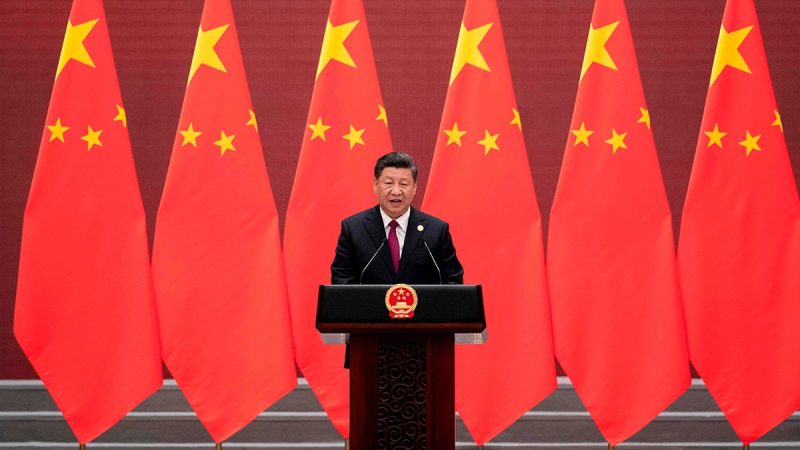TREY GOWDY: China is misjudging Trump on trade. It may soon be very surprised

In a political environment where little is agreed upon, there stands one exception: China. That country is cited by nearly every national security expert as the No. 1 geopolitical threat to the U.S. The question is how to coexist without being codependent, how to compete without conflict, and how to protect American producers and consumers while China plays by its arbitrary rules.
No sooner had a meeting between President Donald Trump and Chinese President Xi Jinping been announced before China threatened U.S. access to rare earth minerals. The U.S. countered by threatening an additional 100% tariff on Chinese imports.
Most Americans could not conjure why China would make such a provocative move after both presidents agreed to meet. Surely, the Chinese government must know Trump would react. Xi has been the leader of China for well over a decade with no sign of relenting.
Conversely, Trump is nearly a year into his final term in office. China has always played the long game, assuming Americans lack the will to wait out a prolonged contest. China thinks patience will win — that Americans can’t sustain pressure. It may wind up being surprised that patience is an overrated virtue and how quickly this administration can act.
The Trump administration has already resolved conflicts around the globe, as evidenced by its history-defying peace agreement in the Middle East. The administration has used tariffs and the threat thereof to increase revenue for the U.S., balance the trade playing field and reposition the U.S. for increased domestic manufacturing.
It has been clear about the threats posed by Venezuela, repositioned our relationship with Colombia, opened dialogue between Israel and moderate Arab states, bombed Iranian nuclear ambitions and closed a porous border. All of that in less than a year.
The conflict left to be resolved is in Eastern Europe, and the ‘white whale’ among outstanding trade agreements is China. The two are interconnected. While the U.S. was trying to isolate Russia for its aggression against Ukraine, China was providing both military and economic assistance to Russia.
Next on the administration’s agenda is ending the Russian invasion of Ukraine and negotiating a trade agreement with China that can withstand the reality that the problematic forces within today’s Chinese Communist Party aren’t going anywhere.
Even if Xi steps down or his power wanes, there is no Chinese equivalent to America’s 22nd Amendment — no constitutional limit to the number of terms or years a leader can serve. That means Beijing’s leadership can remain in power indefinitely, which is a central pillar of the Communist Party’s strategy. The United States must live with that reality and yet negotiate from a position of strength to achieve our interests.
While recent reports suggest Xi’s grip may be weakening amid internal purges and speculation about dissent within the Chinese Communist Party, history teaches such reports are often exaggerated. And even if Xi were to fall, his successor would continue the long-term authoritarian policies that define modern China.
China perceives time and our democratic system as allies in its strategy. The key is to make Beijing recognize Trump’s impatience with that country’s malingering and duplicity is not a weakness but rather a threat to their own interests.
The administration’s China pressure strategy isn’t confined to tariffs. It extends to the technological front, where the next great battles for global power will be fought.
The Trump administration has already resolved conflicts around the globe, as evidenced by its history-defying peace agreement in the Middle East.
Recognizing that China’s dominance in communications and artificial intelligence poses an existential threat to U.S. security, the Trump administration has moved to aggressively end Beijing’s control of critical infrastructure.
For example, the Department of Justice has taken decisive steps to counter the dominance of Huawei, a company controlled by the Chinese Communist Party, over global telecommunications. Huawei still controls the global telecom market (and, by extension, the AI and 5G future) and has repeatedly been found by the Department of Defense and our security agencies to include backdoors and security vulnerabilities.
To level this playing field, the Trump administration — working together with U.S. intelligence officials — approved the HPE-Juniper merger, giving America a credible competitor and a real chance to out-innovate China while securing critical communications infrastructure.
There were opponents to this merger — both the usual suspects and a few new ones. Democrat attorneys general, led by Colorado Attorney General Phil Weiser — are crying foul but doing so without access to any of the information necessary to make an informed decision. Too often, visceral disdain for the president has supplanted a reasoned consideration of national security realities.
When the president perceived national security threats in the computer chip realm, he took the unprecedented step of teaming with Intel. Unconventional? Yes. But these are not traditional times, and the next conflicts will not be waged in conventional terms.
While progress has been made both practically and in principle with China, more remains to be done, which is why the president and his economic, trade and national security teams are willing to meet with China. Next may come tightening export controls on other sensitive technologies and strengthening military partnerships in the Indo-Pacific to deter Chinese ambitions.
Beijing has watched Trump re-invigorate NATO, end several wars, impose tariffs and meet intended pain with imposed pain. Beijing has seen patience when warranted, power when called for, and an overarching preference for peace.
While recent reports suggest Xi’s grip may be weakening amid internal purges and speculation about dissent within the Chinese Communist Party, history teaches such reports are often exaggerated.
Do not mistake diplomacy for weakness or discussion for a lack of resolve. Trump can make peace, level the playing field, stop intellectual property theft, punish currency manipulation and allow for healthy, fair competition, even among perceived opponents.
The fact that someone seeks peace does not mean he isn’t preparing for a world without it. China would be wise to know that while democracy limits a person’s time in office, it does nothing to deter the speed with which actions can be taken to preserve that democracy.



